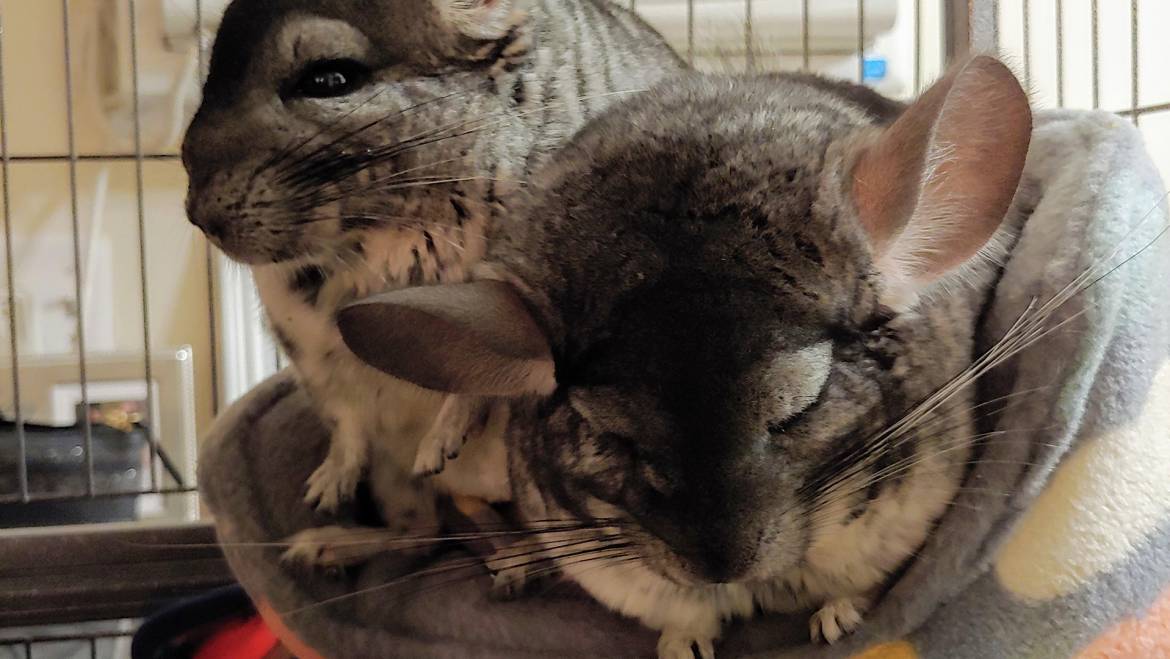Chinchillas are friendly and intelligent pets that make great companions. However, like any other living being, they can experience stress. Stress in chinchillas is not uncommon, and it can be caused by a variety of factors such as a change in the environment, social isolation, and illness. As a chinchilla owner, it is essential to understand the causes, symptoms, and treatment of stress to ensure that your pet stays healthy and happy.
Causes of Stress in Chinchillas
– Environmental Changes
Chinchillas are sensitive to environmental changes, and any sudden change can cause stress. A few examples of environmental changes that can cause stress in chinchillas include moving to a new home, a change in their living arrangements, or exposure to loud noises. To prevent stress caused by environmental changes, it is essential to keep your chinchilla’s living environment as consistent as possible.
– Social Isolation
Chinchillas are social animals and thrive on interaction with other chinchillas or their owners. Social isolation can cause stress and anxiety in chinchillas. If your chinchilla is housed alone, make sure you provide enough social interaction and stimulation to prevent stress.
– Diet
Chinchillas have a unique digestive system, and a sudden change in their diet can cause stress. It is essential to maintain a consistent diet for your chinchilla to avoid stress and digestive problems.
– Illness
Chinchillas are prone to several illnesses that can cause stress. Some of the common illnesses that can cause stress in chinchillas include dental problems, digestive issues, and respiratory infections. If you suspect that your chinchilla is ill, seek veterinary care immediately.
Symptoms of a Stressed Chinchilla
- Aggression: Chinchillas that are stressed may become aggressive towards their owners or other chinchillas. They may nip or bite when handled, which is not typical behavior for chinchillas.
- Loss of Appetite: Stressed chinchillas may lose their appetite, leading to weight loss and other health problems.
- Hiding: Chinchillas that are stressed may hide in their cages or refuse to come out of their hiding place. They may also become inactive and lethargic.
- Fur Loss: Stress can cause fur loss in chinchillas. If you notice patches of fur missing from your chinchilla’s body, it could be a sign of stress.
- Teeth Grinding: Chinchillas that are stressed may grind their teeth. Teeth grinding is a sign of pain or discomfort and should be taken seriously.
Cures for Stress in Your Chinchilla
– Environment
Maintaining a consistent environment is the best way to prevent stress in chinchillas. Make sure your chinchilla’s living space is safe, clean, and comfortable. Avoid exposing your chinchilla to loud noises, bright lights, or sudden changes in their surroundings.
– Social Interaction
Chinchillas are social animals, and they thrive on interaction with their owners and other chinchillas. If your chinchilla is housed alone, try to provide as much social interaction and stimulation as possible. Spend time playing with your chinchilla, and consider adopting a companion chinchilla if possible.
– Diet
Maintaining a consistent and healthy diet is crucial for preventing stress in chinchillas. Avoid sudden changes in your chinchilla’s diet, and make sure they have access to fresh hay and water at all times. Provide a variety of healthy treats in moderation to keep your chinchilla interested in their food.
– Exercise
Exercise is an essential part of a chinchilla’s physical and mental health. Provide plenty of opportunities for exercise by providing a large, safe exercise wheel and toys to play with. You can also let your chinchilla out of their cage to explore a safe, chinchilla-proofed area of your home.
– Medical Care
If your chinchilla is showing signs of stress, it is essential to seek veterinary care. Your veterinarian can rule out any underlying medical conditions and provide treatment if necessary. Additionally, your veterinarian may provide advice on changes you can make to your chinchilla’s diet, environment, and exercise routine to reduce stress.
Stress in chinchillas can be caused by a variety of factors, and it is essential to recognize the symptoms and take steps to prevent and treat stress. Maintaining a consistent environment, providing social interaction, and maintaining a healthy diet and exercise routine can help prevent stress in chinchillas. If your chinchilla is showing signs of stress, seek veterinary care immediately. By taking steps to prevent and treat stress, you can help ensure that your chinchilla stays healthy and happy.







